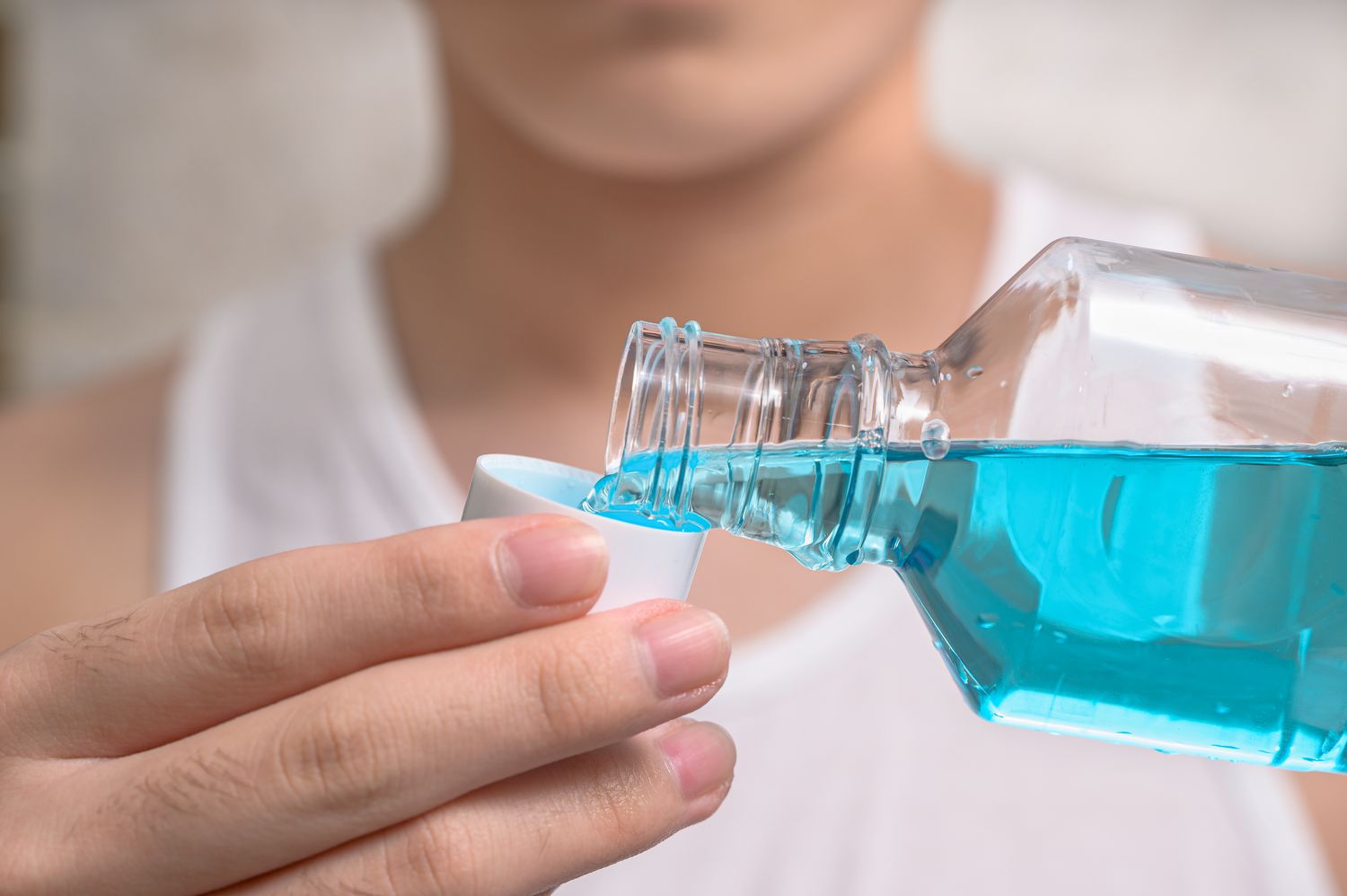Is Daily Use of Listerine Harmful to Your Health?

Many people use mouthwash to try to keep up with their oral hygiene, but according to a new study, some mouthwashes might cause more harm than good.
The research, published in June in the Journal of Medical Microbiology, found that regularly using an alcohol-based mouthwash was linked to higher concentrations of potentially dangerous oral bacteria.
Specifically, the researchers followed 59 men who used Listerine Cool Mint mouthwash and a placebo, each for three months. After the participants used the Listerine mouthwash, study authors noted that they had an “increased abundance of common oral opportunistic bacteria,” which have been linked to certain oral diseases and cancers.
Mouthwashes often contain alcohol and other antimicrobials meant to kill bacteria that cause bad breath. However, those ingredients are non-specific, meaning they can also kill good bacteria. That can cause an imbalance in the oral microbiome (all the bacteria, fungi, viruses, and protozoans living in the mouth). This imbalance can allow disease-causing bacteria to flourish.
“When healthy people use products that kill bacteria to try and ‘clean’ them, they typically do a lot more harm than good,” study author Christopher Kenyon, PhD, MPH, head of the sexually transmitted infection unit at the Institute of Tropical Medicine, Antwerp, and infectious diseases physician at the University Hospital Antwerp and the University of Cape Town, told Health.
Here’s what experts had to say about the new research and what to know before reaching for your favorite daily mouthwash.
To investigate the relationship between mouthwash and oral health, Kenyon and his team used data from the Preventing Resistance in Gonorrhoea trial. Originally, this study investigated whether antibacterial mouthwash could reduce the incidence of sexually transmitted infections (STIs), such as gonorrhea and chlamydia, among men who have sex with men. However, they found the opposite to be true.
“It increased the risk of gonorrhea, likely because it killed the helpful bacteria,” Kenyon said.
In this follow-up study, Kenyon and his team wanted to see how using daily alcohol-based mouthwash might affect a person’s oral microbiome. The 59 participants were men who had sex with men, and all were taking pre-exposure prophylaxis (PrEP)—antiviral drugs used to prevent human immunodeficiency viruses (HIV).
For three months, half the participants used Listerine Cool Mint mouthwash—which contained both alcohol and other antimicrobial ingredients—each day, while the other half used a placebo without antimicrobial properties. Then, the groups switched. The researchers sampled each person’s oral microbiome before and after the three months of daily mouthwash use.
They found that daily use of the alcohol-based mouthwash led to significant changes in the participants’ oral microbiomes. In particular, after using the mouthwash, people had an increased prevalence of Fusobacterium nucleatum and Streptococcus anginosus bacteria.
Streptococcus anginosus is one of the most abundant bacteria even in healthy mouths, said Joel Epstein, DMD, medical director of the cancer dentistry program at Cedars-Sinai, who was not involved with the new study. However, previous research has linked the bacteria to periodontal disease, or gum disease. Some researchers also posit it could be somehow connected to gastric cancer.
High concentrations of Fusobacterium nucleatum bacteria can be similarly concerning—the pathogen has already been linked to periodontal disease, as well as oral, esophageal, and colorectal cancers. It’s something “we’re looking at it more closely in the oncology world,” Epstein told Health.
This possible connection between antimicrobial mouthwashes and disease-causing bacteria is especially interesting, given current cancer trends. Head and neck cancers—including those that appear in the throat and mouth—are on the rise among people younger than 45. A lot of those cases are related to human papillomavirus (HPV) infections, but not all.
“Younger adults are developing oral cancers and we don’t know why,” Epstein said. “They don’t have other known causes such as tobacco use, or viral infections like HPV.”
Past research has suggested that antimicrobial mouthwash, particularly those that contain alcohol, might have a number of effects on the body. These range from possible links to cardiovascular disease to a reduction in some blood pressure benefits after exercise.
A 2019 in-vitro study found that Fusobacterium nucleatum, one of the opportunistic bacteria that appeared to flourish with mouthwash use, might increase the risk for colorectal cancer. The study wasn’t done in humans, so the association cannot directly apply. But it’s an important start.




